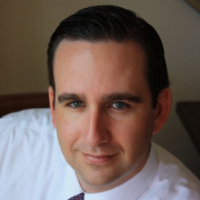 Sun Valley White Collar Crime Lawyers, California
Sun Valley White Collar Crime Lawyers, California
Sponsored Law Firm
-
 x
x

Click For More Info:
-
Aghishian Law Corporation
16133 Ventura Blvd 7th Floor Encino, CA 91436» view mapCriminal Defense 30 Years Of Experience
Attorney Aghishian's in-depth experience and appreciation for the State of California make him uniquely qualified to advocate for the rights of his fellow Californian clients.
800-741-7170
Sponsored Lawyers
1-10 of 12 matches
Criminal, White Collar Crime, DUI-DWI, Misdemeanor, Felony
Michael Berg is an experienced criminal defense attorney who is dedicated to defending his clients and ensuring they receive excellent representation. He has represented more than 1,000 clients in felony and misdemeanor cases in Los Angeles, Orange, San Bernardino, Riverside, Ventura, Santa Barbara, San Diego, Imperial, and Kern counties. He has defended clients against a wide array of charges, including murder, sex crimes, domestic violence, drugs, gun crimes, battery, gang crimes, assault with a deadly weapon, three strikes, child abuse, DUI, theft, embezzlement, credit card fraud, identity theft, and traffic matters. Michael also handles probation violations, pre-filing investigations, and negotiations with officers and prosecutors. He additionally represents victims of domestic violence. Through years of practicing criminal law in Southern California, Michael has built relationships with prosecutors and judicial officers based on his ability to identify strong legal and factual defenses for his clients. When appropriate, he also prepares materials for prosecutors to “humanize” his clients and share mitigating factors that can help to prevent charges from being filed or reduce their severity. He also has successfully worked with expert witnesses on DUIs, DNA, gangs, accident reconstruction, mental health, and other issues to develop defenses and prepare the best arguments for pre-trial and trial phases. Michael graduated from Southwestern University School of Law in 2005. During law school, Michael was a certified law clerk in the Los Angeles County District Attorney’s Office and handled over 5,000 arraignments and 2,000 bail motions. He also previously clerked in the Los Angeles City Attorney’s Office.
(more)


 Ara Aghishian Encino, CA
Ara Aghishian Encino, CA Practice AreasExpertise
Practice AreasExpertise

